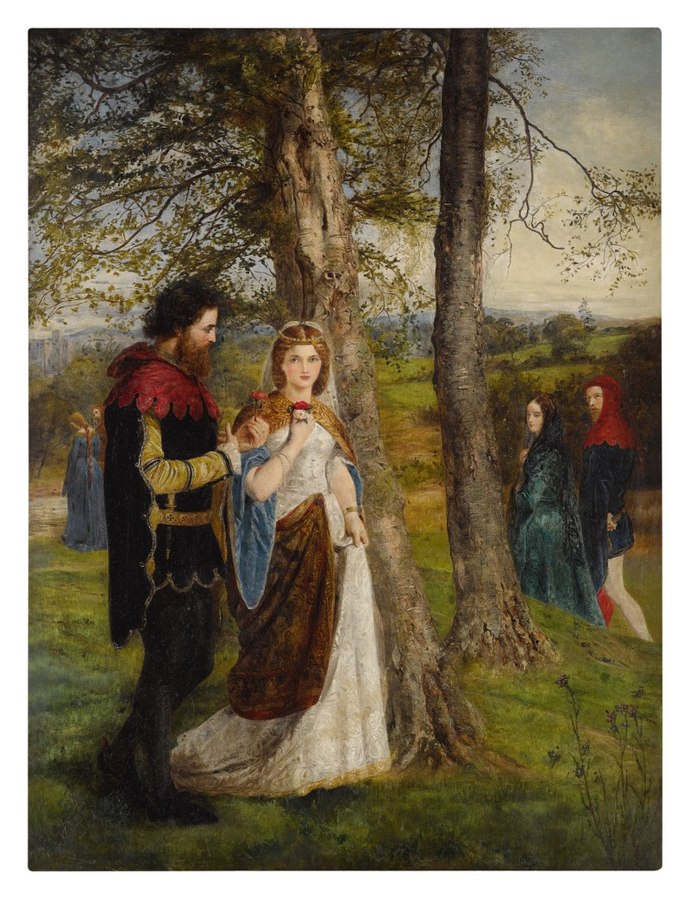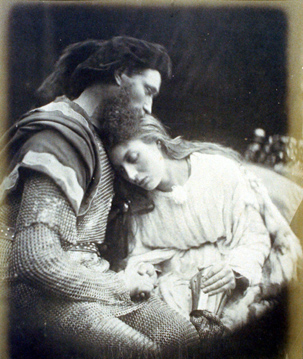William Morris and the Tragedy of Lancelot and Guinevere
By Daniel Cano

As well known as King Arthur’s blade or the Holy Grail of Jesus Christ, the love between Sir Lancelot and Queen Guinevere has cemented itself as one of the most integral romances of the literary world. It hits all the marks of “true love” including the sacrifice of reputation and the performance of noble deeds. As a courtly romance, it also sets the bar high with Lancelot trying his best to show his love and Guinevere trying to keep their affair secret. Though their relationship is admirable and such a classic that it’s been reimagined in other stories and media, the exaltation of their story has lost its original tragicness.
The nature of Courtly Love is the romance between a nobleman, often a knight errant among his peers, and a married noblewoman to whom the knight pledges his victories towards. Word for word Sir Lancelot and Queen Guinevere fit this narrative well. Lancelot is exclaimed as the greatest of the knights of the Round Table under Arthur. As for Queen Guinevere, she is exalted as the noblest queen. But Guinevere is married to King Arthur and this courtly love is nothing short of a love affair. All the glory Lancelot wins through his deeds is towards a woman who is already pledged to another.

It’s William Morris who understands the tragedy between the two lovers. His poem, The Defence of Guinevere, does a great deal to depict their relationship as one born from genuine love and not spurned from adultery. The poem is written from the perspective of Guinevere, who is put on trial and must defend her actions after being accused of adultery. The other knights are present but it is Sir Gawain who seems to be leading the accusation. Throughout the poem, Guinevere exclaims that Sir Gawain’s accusation is a lie because she is speaking the truth. Morris never explicitly states what Sir Gawain’s accusation is but secretly reveals it through Guinevere’s criticism of her marriage. When she reflects on Arthur and Lancelot, she points to the fact that her marriage to him was not brought up from love and hasn’t flourished. Because of it, she argues against wanting to remain loveless for the rest of her life. Though she is careful not to speak of Lancelot, the reader can assume that she has him in mind when confronting Sir Gawain.
Through speculation, one could argue that Sir Gawain has accused Guinevere of betraying King Arthur’s love. Legally she has done so but in the spirit of the relationship, she hasn’t. Morris has this idea as the central focus of his poem for a good reason. In his time adultery was despised more vehemently since women were expected to act more reserved and dispassionate. Morris’s poem is a statement against his time’s views on love presented through Guinevere’s devotion to Lancelot. The tragedy resides in Guinevere’s inability to express her true love at risk of being put to death. The courtly love portrayed here is greater in value than in its original texts.





